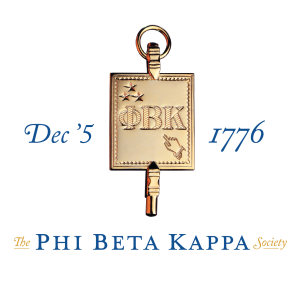Phi Beta Kappa welcomes Julia Bryan-Wilson as keynote speaker for 101st initiation

The Phi Beta Kappa Delta of Maine chapter will initiate its 101st class on March 28 at 4 PM at the Buchanan Alumni House. The ceremony – which is open to the public – will feature a keynote talk from Professor Julia Bryan-Wilson, professor of art history and core faculty at the Institute for the Study of Sexuality and Gender at Columbia University.
Bryan-Wilson’s talk – titled “Stitching Protest” – examines how needlework textile techniques such as embroidery and quilting have been used in recent decades as a form of protest by artists and anonymous makers alike. Focusing primarily on women of color taught by their mothers from the 1970s on, the talk addresses how the stitch can be a tool, both for puncturing conventional narratives and for mending new art histories.
Timothy Cole, Associate Dean in the College of Liberal Arts and Sciences and president of the Delta of Maine chapter, noted that “We’re very pleased to be able to host Professor Bryan-Wilson. She is an internationally recognized scholar. Faculty and students from a number of programs on campus, such as Art, Philosophy, Women’s, Gender, and Sexuality Studies, and the Honors College (among others) were excited to learn of her visit.”
Founded at William & Mary in 1776, Phi Beta Kappa is one of the country’s most prestigious academic honor societies. Approximately 10% of the colleges and universities in the country host chapters, with PBK adding new ones on a triennial basis. At present, there are 293 schools on that prestigious list.
Membership is extremely selective within those chapters as well, with just the top 10% of a school’s liberal arts and sciences juniors and seniors qualifying for selection. Those chosen will join a list of more than half-a-million fellow PBK members as part of one of the country’s oldest and most venerated academic cohorts.
The Delta Maine chapter is the only public university chapter in the state and one of the 100 oldest in the entire Phi Beta Kappa organization. To reach this level of longevity requires a generational commitment; UMaine’s students, staff and faculty have spent a century rising to the challenge inherent to that commitment.
–

